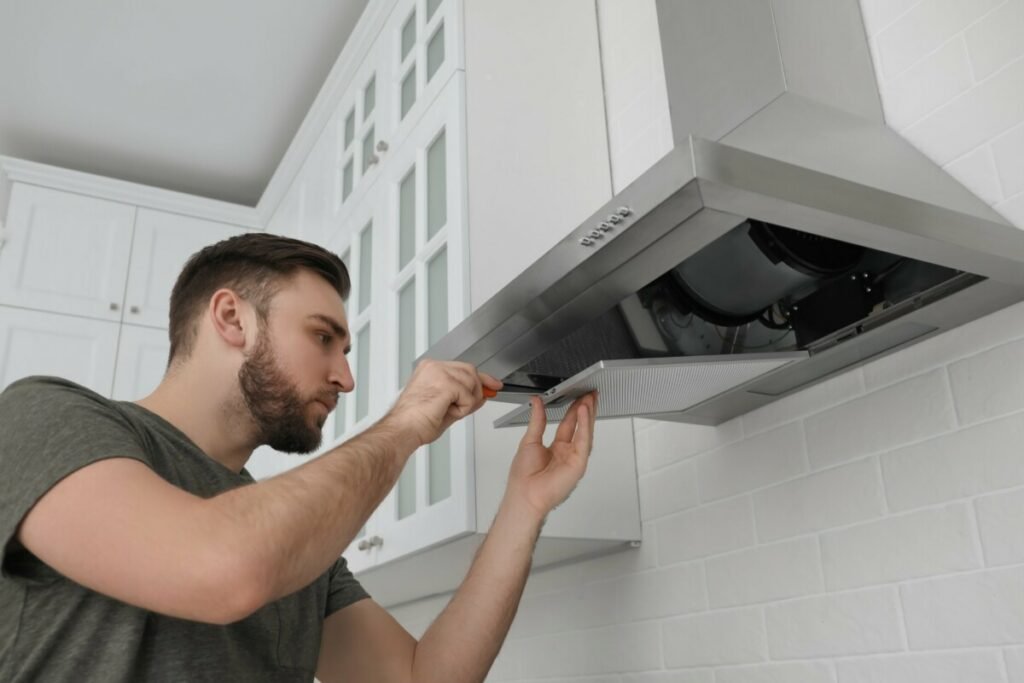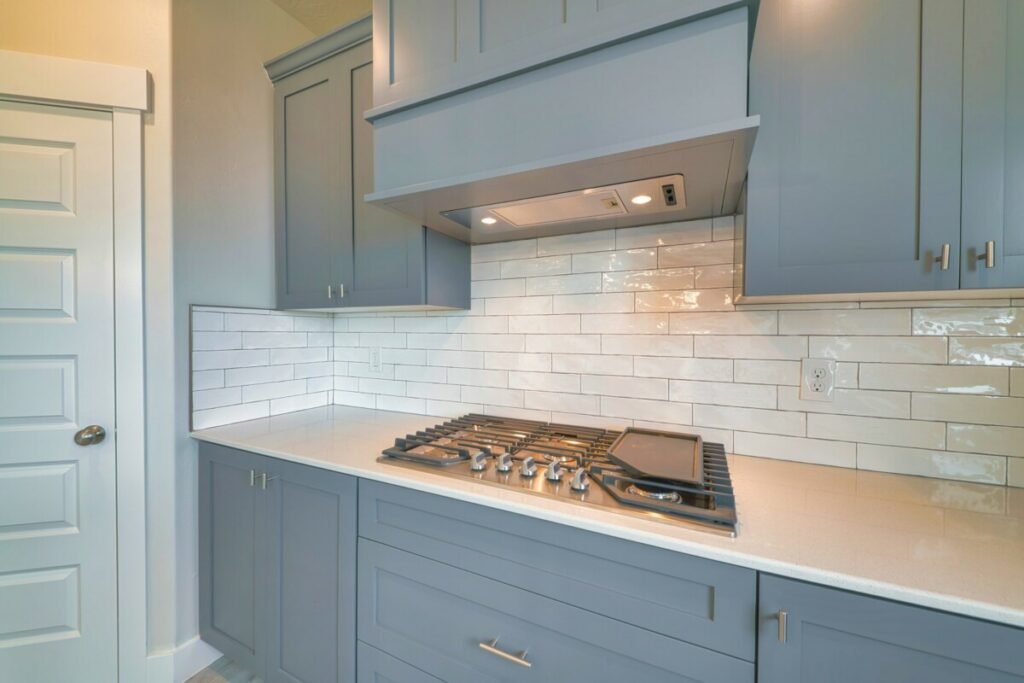There is nothing more annoying than a constant squeaking, grinding, or rattling noise when you’re just trying to cook. Not only is the sound annoying, but a noisy kitchen exhaust fan can indicate that there is something wrong with your exhaust. Checking for issues will save your ears and prevent a bigger issue from forming.
1. The Fan is Damaged
The fan and its motor are the only things that move inside of the exhaust hood, so you should check there first for the source of the noise. A bent fan blade will make a loud rattling noise as it hits everything surrounding it.
Depending on how your exhaust system is set up, it could be hitting the filter, the hood, or any number of different parts. If the fan is damaged or bent, you will need to replace it.
To check out the condition of the fan you may or may not have to remove the filter, but it should slide out easily and give you access to the inner workings of the hood. Industrial exhaust systems will have access points built in.
2. The Fan is Loose
Another reason why you might hear loud rattling would be if the screws holding the fan in place came loose. Luckily, this is an easy fix for anyone that knows how to handle a screwdriver. Using a short-handle screwdriver will help you access any hard-to-reach angles.
If you suspect the fan is the issue, simply tighten all of the screws that are holding the fan into place. You don’t need to use aggressive strength, but they should be hand-tight. Turn the fan on after tightening to verify you solved the problem.
3. Something is Dirty and Dusty
Any Kitchen exhaust fan will make a humming noise, but if you notice the humming is loud and it sounds like something is vibrating, then it might be time to give the inside of the hood a good cleaning. Dirt and dust can easily collect, especially if there is any greasy residue.
Dust on fan blades will cause a slight imbalance, which is why you hear the loud vibration. When the fan is off balance it will grind unevenly on the bearings and belts. Make sure to clean the inside of the hood regularly to avoid any long-term damage to the mechanics.
4. The Motor is Damaged
The motor that powers the fan is a complex system with lots of little pieces working intricately together. General wear and tear from years of use can work pieces loose, resulting in damage and noise.
If you suspect the motor is the issue, you will likely want to call a professional to take a look unless you are very comfortable with motor repairs. The motor is the powerhouse of the whole system, and any problem with it has the potential to turn serious.
5. There is a Loose Screw on the Hood
A loud rattling noise might also be because of a loose screw in the hood instead of the fan. If some other part of the exhaust system is able to wiggle and move, the motion of the fan will cause the whole thing to wiggle slightly.
A loose screw or loose pieces repeatedly hitting against each other will create a really annoying, loud noise.
Luckily, this is a really easy fix and you can simply tighten any loose screws with a regular screwdriver. When all the screws are tight, there will no longer be any wiggle room for the hood to be making noise.
6. There is Something Caught in the Hood

It is a little less likely, but very possible, that something could be caught in the hood, causing noise when the fan hits it.
This could be something small like food debris or something larger like a piece of screw that has fallen out of place. With large, industrial systems, it is even possible to have pests get into the system.
It is important to clean your kitchen exhaust system regularly and thoroughly. The longer you leave any foreign objects in the system, the more damage it will cause.
7. The Bearings are Damaged
Bearings are an important part of machines that require rotating motion, like a fan. The bearings allow the fan to turn quickly and smoothly, and use power efficiently.
If the bearing is damaged in any way the rotation will stop being as efficient and affect the rotation of the fan. This can definitely cause some loud noise, likely grinding since the fan is not able to turn smoothly.
Bearings can be replaced without getting a new fan or exhaust and the system will be restored to full function. Replacing a bearing is likely something that you should hire a professional to do since a poorly functioning bearing can begin to further damage other parts of the machine.
8. The Belts Need Attention
Many fan motors use belts to connect the motor to the fan. The moving parts of the motor create movement in the fan as long as the belts are in good condition. It is very normal for belts to get some wear and tear after multiple years of use.
If the belts have stretched out and become loose, or the belts have slipped out of their original position, you will probably be hearing a squeaking noise. If the belts are out of place, they can simply be moved back, but if the belts are loose you will need to replace them.
9. You Need a New Exhaust System

There are some situations where you just need to replace the whole exhaust fan system and hood. If you are unable to find the source of the loud noise, or the fix is not worth your time and effort, you can always just replace the whole system. The is practically guaranteed to stop whatever loud noise you are hearing.
The type of exhaust you buy will depend on your kitchen. If you have cabinets above your stove you will want something that will not get in the way of those cabinets.
But if the space above the stove is clear, you should go with a chimney-style exhaust. If there is ever a time in between without any exhaust fan, make sure you ventilate the area well while cooking with a heavy-duty fan.




